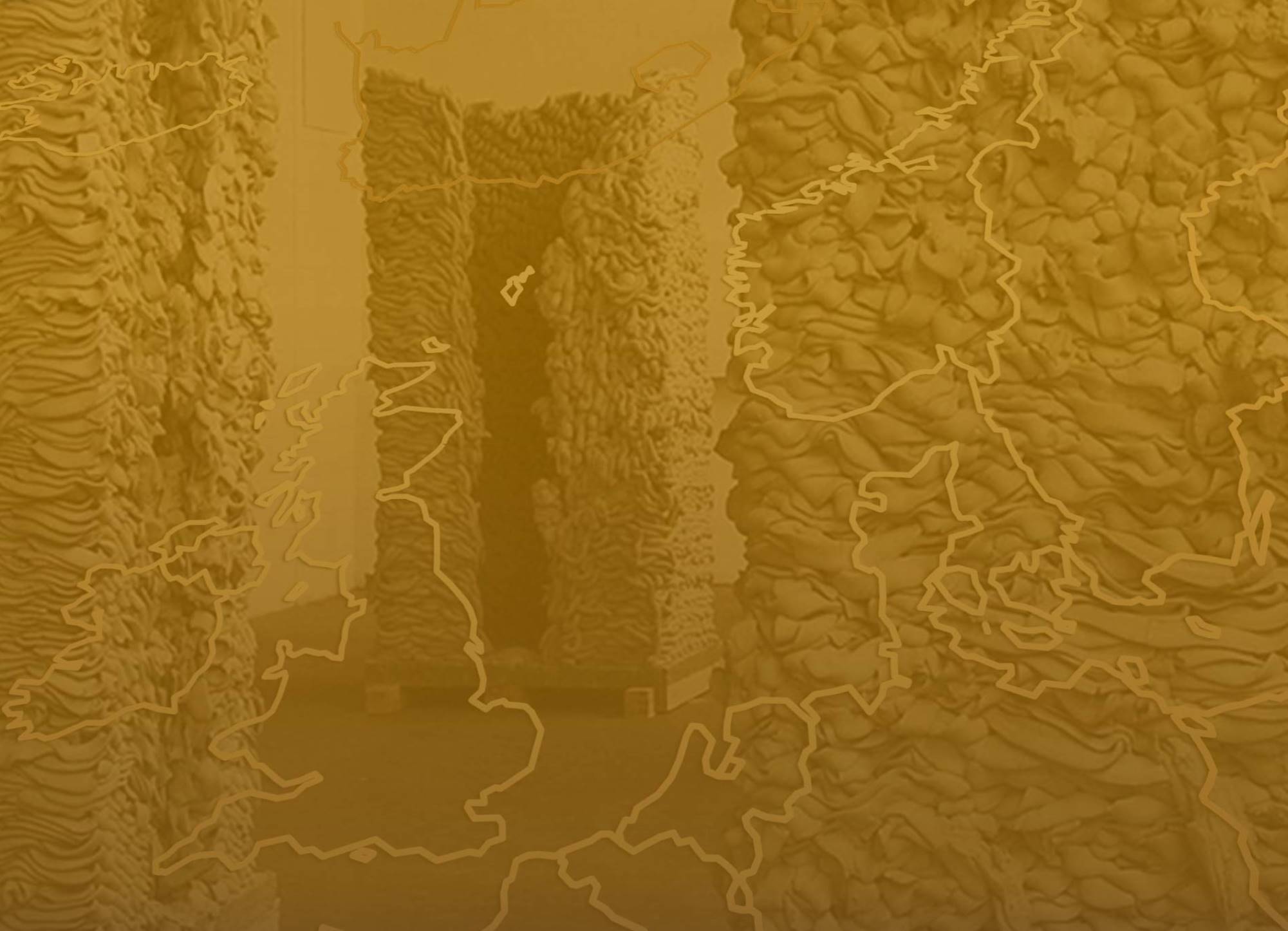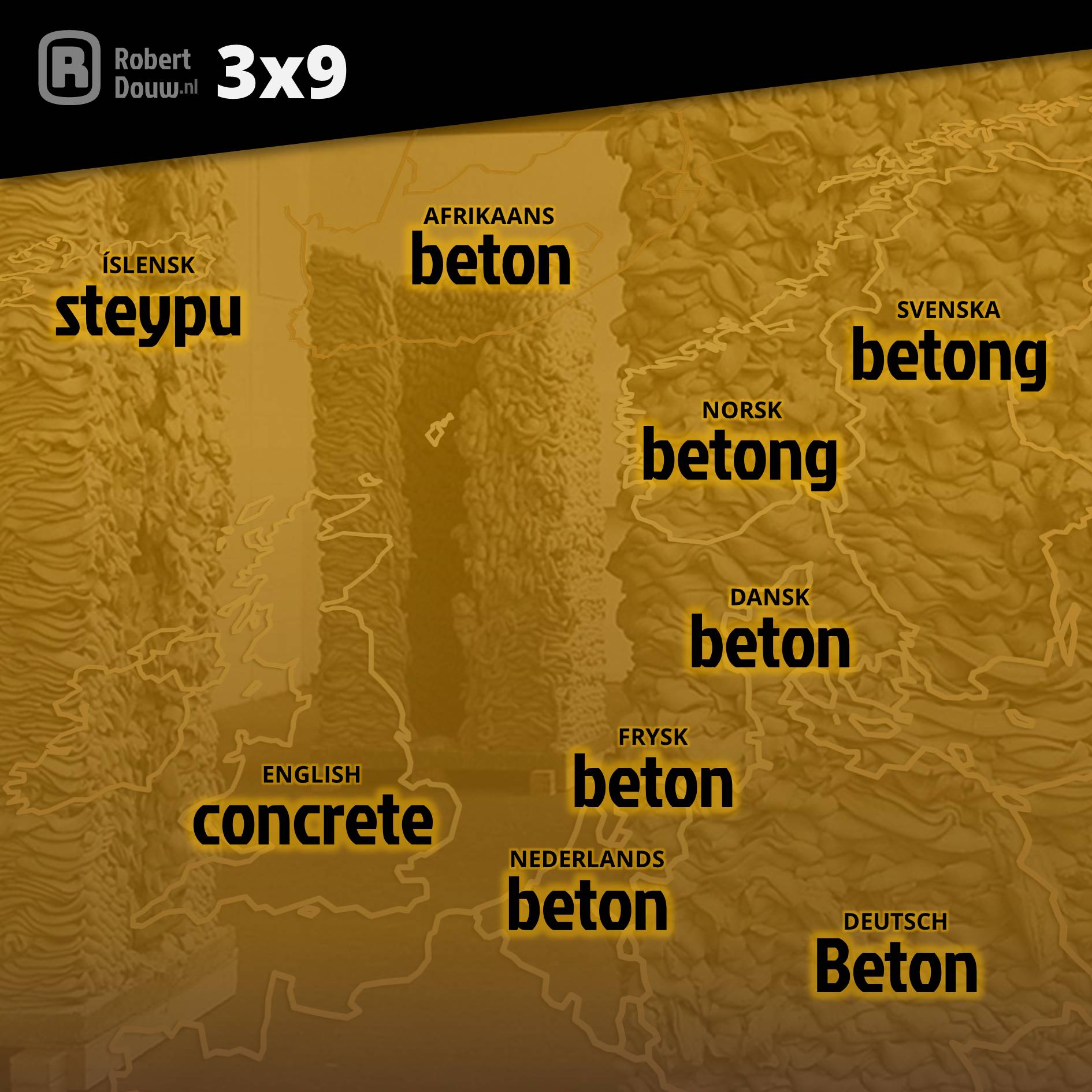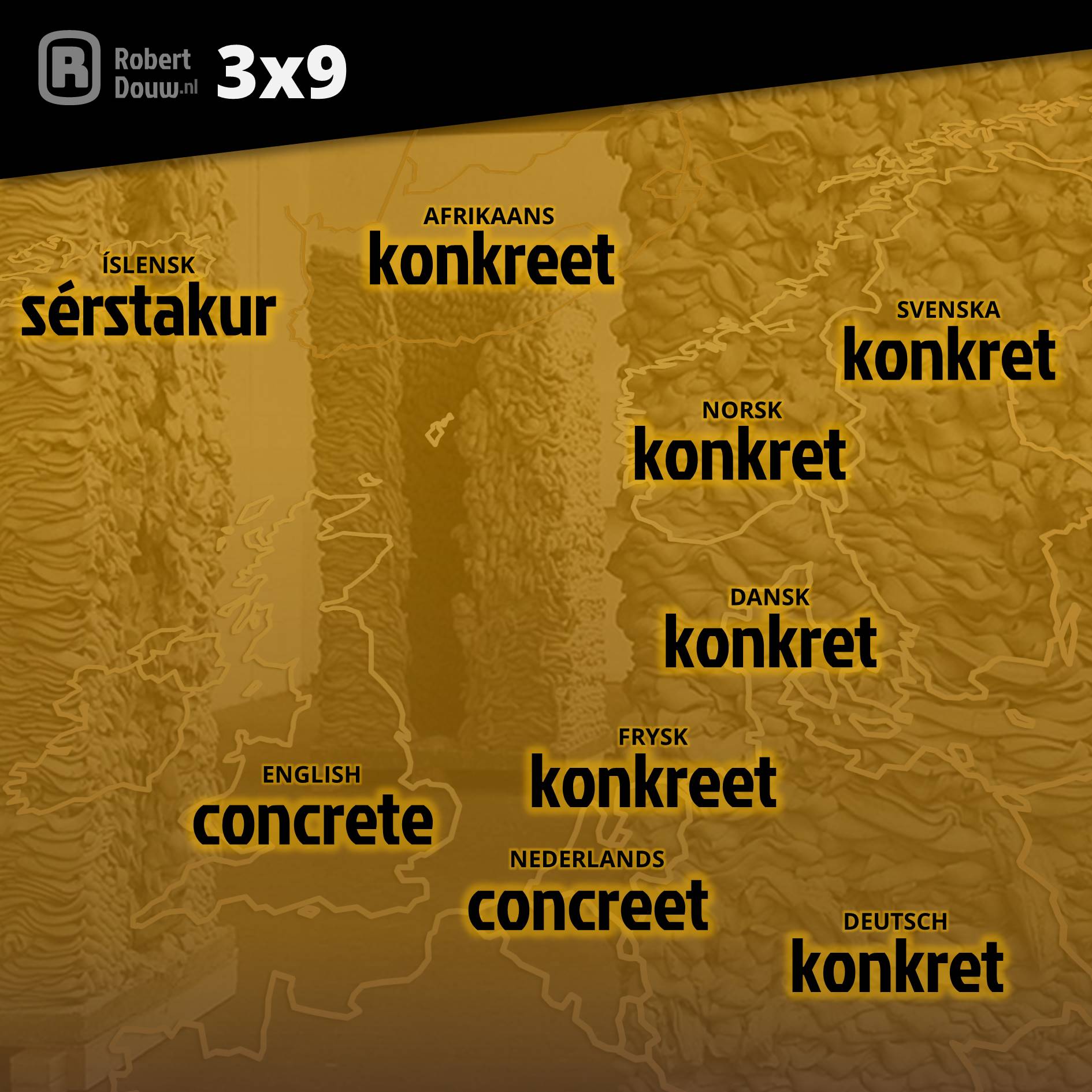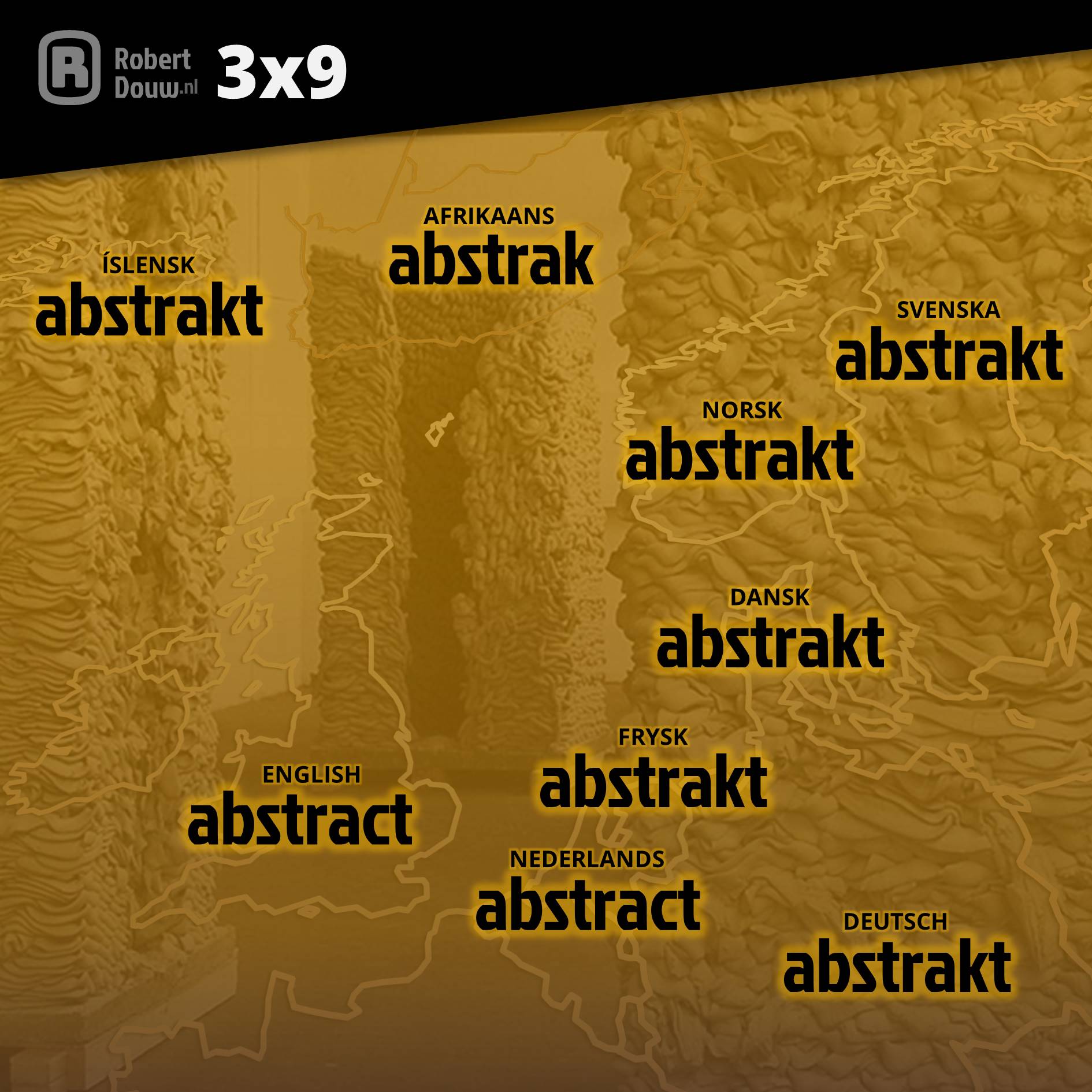THREE TIMES NINE
concrete, concrete, abstract
Linguistics
| 27-04-2022
What in most Germanic languages is called beton(g) is refered to by English speakers as concrete. That word resembles Dutch concreet (also concrete in English) and I have always wondered whether those words have anything to do with each other. I couldn't really imagine concretely how you would get from that rather abstract concept to the building material, or vice versa.
The text continues below the images.
concreet
The Dutch word concreet ("bound to form or object; actually existing") is derived from the Latin word concrētus, which means, among other things, "grown together, condensed". It is derived from crēscere, Latin for "to grow", which in turn comes from creāre "to create". With some searching I have found a variant of the word concreet with the same meaning in all the illustrated languages except Icelandic, but I have the impression that a synonym of that word is more common in most languages. In any case, Google Translate always comes up with a different word.
concrete
The origin of concreet already gives away a bit of why the word in English is also used for the building material. By about 1520, according to etymonline.com, concrete was used in English with the meaning "that which is material or not abstract." The meaning "a mass formed by concretion" dates from around 1650, which led to the meaning "building material made from sand, gravel, stone chips, etc., cemented together" around 1834. A very logical word, actually. It could very well have had the same meaning in the other Germanic languages, which interestingly enough did not happen.
bitumen
Where does the word beton come from? From French: the word béton is a further development of the Old French betun, which meant "cement, mortar". The French have derived that word from Latin bitūmen "earth pitch, asphalt", which we still know in different meanings in the Germanic languages. As a result of language evolving and derivations and different meanings arising, today we build roads with a substance called asphalt concrete. Bitumen bitumen, you could say.
abstract
The antonym (word with an opposite meaning) of concrete in the meaning "bound to form or object" is abstract. That word also has acquired meanings over time and today – already for at least a hundred years – besides "not concrete" it also means "non-figurative". This term from the visual arts means that you see shapes, but that they should not represent something existing such as a person or an object. The work by Anish Kapoor in the background of the images above is a concrete example of an abstract work of art made of concrete.
The Dutch word concreet ("bound to form or object; actually existing") is derived from the Latin word concrētus, which means, among other things, "grown together, condensed". It is derived from crēscere, Latin for "to grow", which in turn comes from creāre "to create". With some searching I have found a variant of the word concreet with the same meaning in all the illustrated languages except Icelandic, but I have the impression that a synonym of that word is more common in most languages. In any case, Google Translate always comes up with a different word.
concrete
The origin of concreet already gives away a bit of why the word in English is also used for the building material. By about 1520, according to etymonline.com, concrete was used in English with the meaning "that which is material or not abstract." The meaning "a mass formed by concretion" dates from around 1650, which led to the meaning "building material made from sand, gravel, stone chips, etc., cemented together" around 1834. A very logical word, actually. It could very well have had the same meaning in the other Germanic languages, which interestingly enough did not happen.
bitumen
Where does the word beton come from? From French: the word béton is a further development of the Old French betun, which meant "cement, mortar". The French have derived that word from Latin bitūmen "earth pitch, asphalt", which we still know in different meanings in the Germanic languages. As a result of language evolving and derivations and different meanings arising, today we build roads with a substance called asphalt concrete. Bitumen bitumen, you could say.
abstract
The antonym (word with an opposite meaning) of concrete in the meaning "bound to form or object" is abstract. That word also has acquired meanings over time and today – already for at least a hundred years – besides "not concrete" it also means "non-figurative". This term from the visual arts means that you see shapes, but that they should not represent something existing such as a person or an object. The work by Anish Kapoor in the background of the images above is a concrete example of an abstract work of art made of concrete.
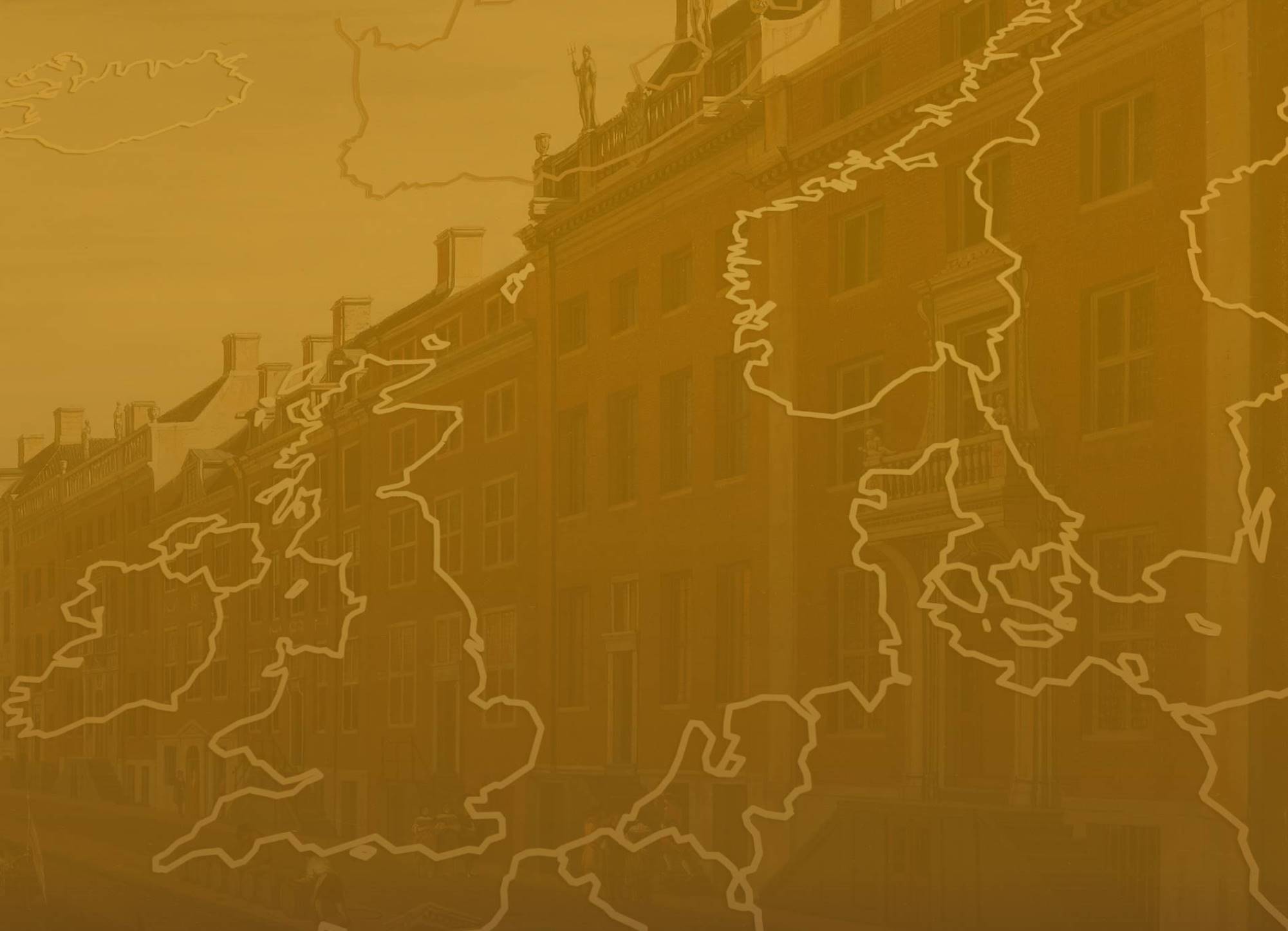
THREE TIMES NINE
city, in stead of, steady
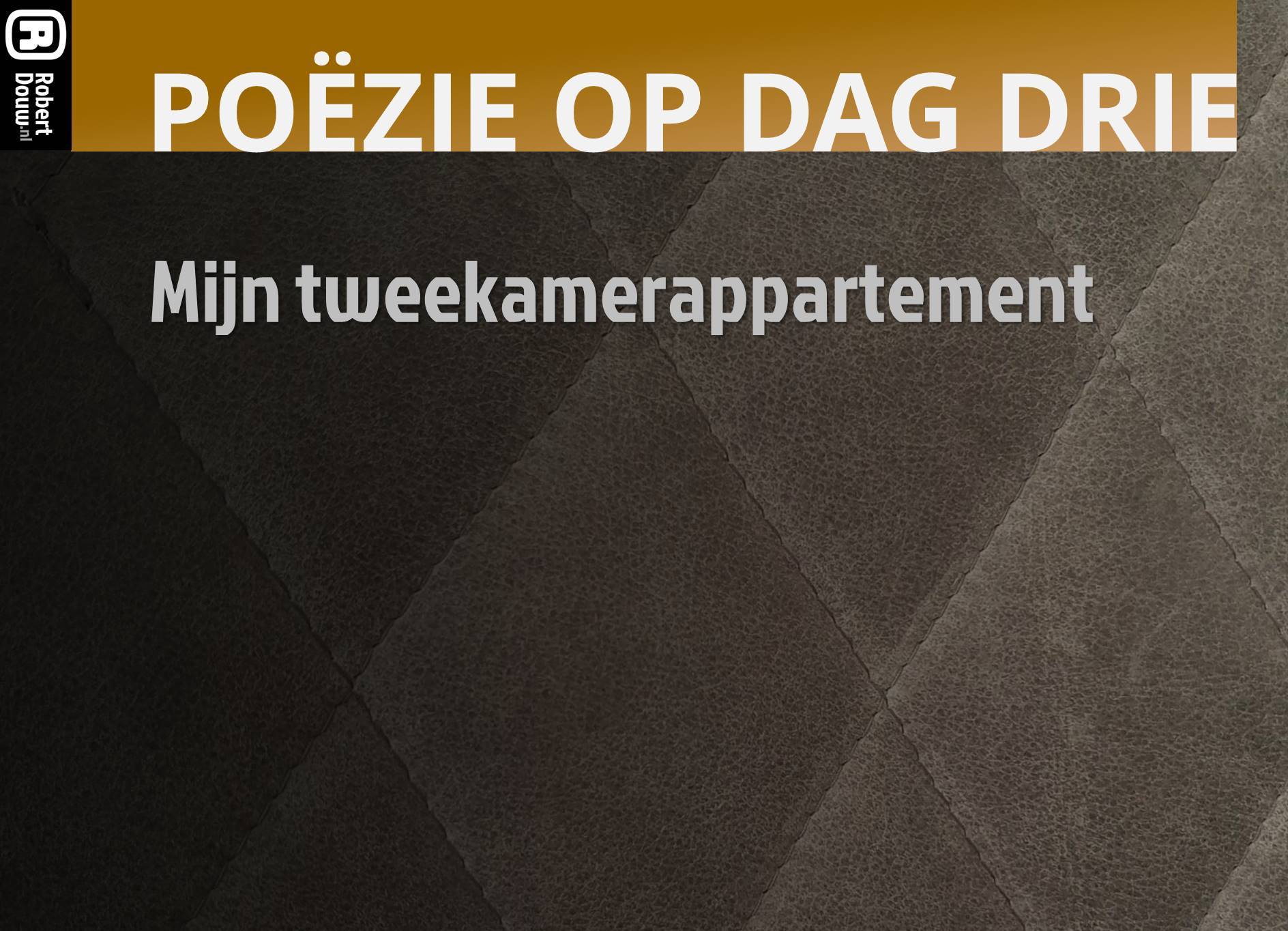
POETRY ON DAY THREE
Mijn tweekamerappartement
LINGUISTICS
Click here for an overview of everything in the Linguistics section.
